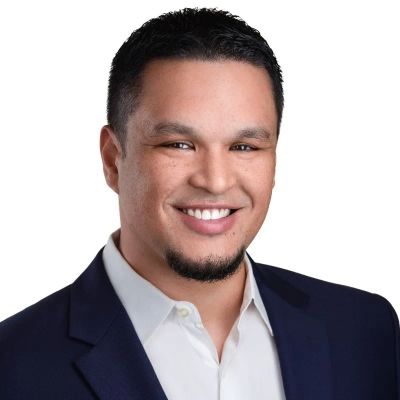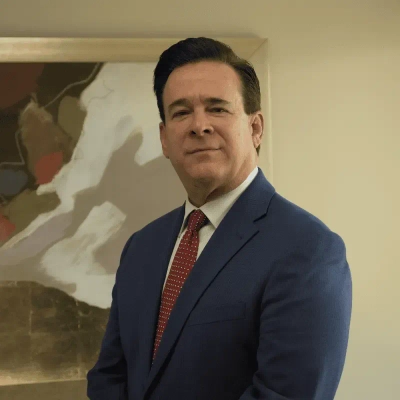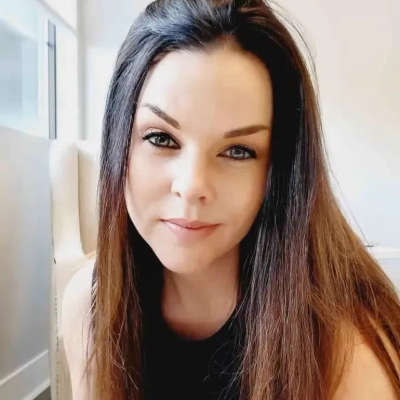25 Financial Mistakes That Taught Small Business Owners Valuable Lessons
Successful small business growth often comes through learning from costly mistakes, as demonstrated by the hard-earned wisdom shared by industry experts. These financial missteps range from cash flow mismanagement and improper pricing to inadequate vetting of investors and vendors—each providing valuable lessons for new entrepreneurs. The collective experience presented offers practical guidance on everything from maintaining cash reserves to protecting your business vision while avoiding common pitfalls that could derail growth.
Conservative Assumptions Prevent Cash Flow Crunches
Being the Founder and Managing Consultant at spectup, I've learned that even small missteps in financial planning can have outsized impacts. Early in one of my ventures, I overestimated revenue from a major client while underestimating the operational costs required to support their contract. The result was a short-term cash crunch that forced difficult decisions about staffing and vendor payments. At first, it felt like a failure, but looking back, it became a defining learning moment about the importance of conservative financial assumptions and active monitoring.
To address the immediate problem, I implemented daily cash tracking and prioritized transparency with both the team and critical suppliers. I also created rolling forecasts to anticipate potential gaps rather than relying on static budgets. Over time, this experience reshaped how I approach financial planning in every business I advise. I realized that managing cash flow proactively is often more critical than chasing growth metrics or headline revenue.
I also learned the value of scenario planning. By modeling best-case, expected, and worst-case outcomes, I could make informed decisions even in uncertain circumstances. At spectup, we teach startups to embed this mindset early, emphasizing the link between financial discipline and investor confidence. Since then, I approach contracts, scaling decisions, and new initiatives with a balance of optimism and caution. That early mistake instilled a culture of foresight, adaptability, and accountability, transforming how I manage business finances while ensuring long-term sustainability and credibility with both teams and investors.

Prioritize Traffic Before Website Redesigns
Early on, I invested in a flashy website redesign for What Kind of Bug Is This, but I didn't have enough traffic to justify the spend. It looked great, but it didn't move the needle — because design without traffic is just decoration. I should've focused that budget on content and SEO first.
That experience taught me to always link spending to outcomes I can measure. Now, I ask one question before approving anything: "What's the fastest way this can earn itself back?" It's made my approach a lot more grounded and results-driven, especially when funds are tight.
Proper Pricing Attracts Better Clients
Early in my business, I made the costly mistake of significantly undercharging for our services out of fear that clients would reject higher prices. This approach backfired by attracting difficult clients who demanded excessive revisions while paying late, resulting in working harder for less profit. When I finally raised our prices by 50% and implemented value-based pricing, we not only improved profitability but also attracted better clients who respected our expertise. This experience taught me that pricing properly isn't just about revenue—it's about attracting the right clients who value your work and contribute to a sustainable business model.
Understand Services Before Outsourcing Them
One of my biggest financial mistakes was outsourcing our marketing to an external company without properly understanding their work or conducting adequate research. We continued paying for these ineffective services for months, which nearly drove our business into bankruptcy during its early stages. This experience taught me that business leaders need sufficient knowledge in all operational areas, even those they plan to delegate. Now, I ensure I understand the fundamentals of any service we pay for and implement proper performance metrics before committing significant financial resources.

Diversify Client Base For Stable Growth
At PlayAbly, an overreliance on one large client nearly put us in a tough spot when their priorities shifted and their business went elsewhere. I've since learned to proactively balance client portfolios and seek out more varied industries, which has helped steady our cash flow and made growth more predictable.
Test Solutions Before Full Technology Adoption
I once splurged on high-end marketing automation tools before fully grasping my agency's client workflow. That decision left us with bloated costs and confusing onboarding experiences. Since then, I've prioritized smaller-scale solutions, testing in real-world settings before adopting anything bigger. It's been much more effective to build up from proven needs rather than hoping tech will magically handle every challenge.
Quality Equipment Saves Money Long Term
One financial mistake I made early at Jacksonville Maids was buying lower-quality cleaning equipment just to save on upfront costs. The pattern I've noticed is that this approach consistently leads to higher expenses later, since cheap tools break and need constant replacing. Not only did I spend more on replacements, but our service speed took a hit, which risked our team's reputation with clients. Now, I always invest in better equipment from the start and suggest that other small business owners consider long-term value over initial savings.

Flexibility Outweighs Savings in Contract Decisions
One of the biggest financial mistakes I made wasn't overspending—it was signing contracts that locked us into "cheap" deals that ended up being incredibly expensive. Early on, I thought I was being scrappy by committing to year-long service agreements that saved a few hundred dollars a month. The problem? As the business evolved, those tools no longer fit. We were stuck paying for software we barely used, while also shelling out for replacements.
What I learned is that flexibility is worth paying for. In the early stages of a business, optionality is more valuable than marginal cost savings. I would've been better off paying a higher monthly rate with the ability to pivot quickly, rather than celebrating a "great deal" that turned into a financial anchor.
That experience completely shifted how I handle finances. Now, instead of asking "how much will this save me over 12 months?" I ask, "what's the cost of being trapped in this decision if things change in 3 months?" That single mindset shift has probably saved me more money—and sanity—than any discount ever could.

Environmental Assessments Protect Future Investments
One financial mistake I made early at Titan Funding was offering bridge loans on commercial properties without insisting on thorough environmental assessments. We didn't see immediate issues, but later got hit with liability from hidden contamination, which could have been avoided. Now, I always require a Phase I environmental review, even if clients resistit's non-negotiable and shields us legally and financially.
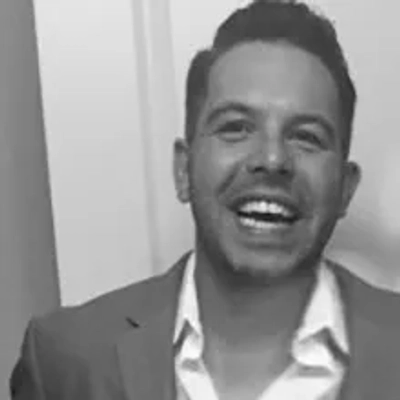
Contractors Preserve Startup Runway
Right after our YC batch, we hired full-time engineers too quickly, which drove up our burn rate way more than we expected. I recognize this because our expenses shot up by $40K monthly, limiting our flexibility as a startup. Switching to contractors for non-core projects let us preserve runway while keeping our momentum and focus. If I could advise my past self, I'd say stay lean until your core product really justifies a bigger team.

Invest in Mentors Who Understand Your Industry
One of the biggest financial mistakes I made early in my business was investing in coaches and programs that weren't truly aligned with who I am or what I'm building. I was investing from a place of 'wanting to belong' in the online business space, not from a place of strategy. I'd see the Stripe screenshots and success stories and think, 'Maybe this will be the thing that helps me scale.' But I never stopped to ask the most important question: do they actually understand me as a CPA, as a Fractional CFO, and as someone building a professional service firm, not just another coaching brand?
That lack of alignment cost me both money and momentum. I realized that the advice that works for a coach selling a course doesn't always translate to regulated, high-trust professions like finances and accounting. What I needed wasn't flashy marketing, it was depth, systems, and strategy.
Now, every investment I make is rooted in intention and long-term alignment. I only work with mentors who understand my industry, my vision, and the kind of legacy I'm trying to build. I don't spend to 'keep up', I invest to build something that lasts.

Track Customer Acquisition Costs Carefully
One major lesson from Tutorbase's early days came when we neglected to track customer acquisition costs carefully. I vividly recall spending nearly $200 just to acquire a customer worth $45 a month, which made us quickly realize how those numbers just didn't add up. Since then, I've enforced detailed CAC tracking and now only pursue channels where the lifetime value to acquisition cost ratio is at least 3:1a shift that's kept our growth sustainable and our budgeting much more realistic.

Choose Investors Who Respect Your Vision
One of the biggest mistakes I made when I launched my first business was failing to understand the costs associated with outside funding. Investors are a necessity for most startups, but not all investors will simply give you money and sit back to wait for their profits. Investors with agendas about how to structure your business, how quickly to expect profitability, or where to locate are often not worth the hassle. I ended up exiting that first startup at the earliest opportunity specifically because I lost control of it.
Reliable Vendors Cost Less Than Cheap Ones
One of my early financial mistakes was trying to cut costs by hiring the cheapest vendors instead of the most reliable ones. On paper, it looked like a smart move, but the constant delays, rework, and customer frustration ended up costing far more in the long run. That experience taught me that the lowest bid isn't always the best value—dependability and quality save money over time.
Since then, I've started evaluating vendor relationships based on performance and long-term impact, rather than just price. I consider factors such as response time, consistency, and their communication when issues arise. Investing in reliable partners has improved our efficiency, reduced service disruptions, and built stronger business relationships that pay off year after year.

Measure Marketing Returns Before Scaling Expenses
Early on, I made the mistake of spending too much on marketing before fully tracking where our leads were coming from. I assumed higher spending would lead to faster growth, but we ended up wasting money on ads that failed to reach our target audience. It was an expensive lesson in understanding that not every dollar spent brings equal value.
Since then, we've built a habit of measuring return before scaling any expense. Every campaign, supplier contract, or new tool now starts with a small test phase and clear metrics. That change has made our budgeting far more disciplined and our growth more predictable. It taught me that being financially cautious isn't about spending less—it's about spending smarter.

Maintain Cash Reserves For Rental Vacancies
Buying several rental properties at once without setting aside enough cash for vacancies hit me unexpectedly hard. I've seen underestimating the risk of simultaneous vacancies nearly cripple a business, and it definitely put my own finances under pressure. Now, I always keep at least six months of operating expenses per property in reserve; it's not glamorous, but it's saved me from repeating the same mistake.

Align Major Expenses With Predictable Revenue
Early on, I underestimated the importance of cash flow timing and overinvested in new equipment during a slow season. The purchases were sound long-term, but the strain on working capital made it difficult to cover short-term operational costs. That experience forced me to separate enthusiasm from forecasting. I started building a rolling 90-day budget that tracks both expected income and seasonal dips, ensuring every major expense aligns with predictable revenue.
It also led to setting aside a maintenance reserve so urgent repairs or replacements never disrupt payroll or project schedules. The lesson was simple but lasting: growth must follow liquidity, not the other way around. Since adopting that mindset, financial stability has become a tool for expansion rather than a reaction to pressure.

Separate Business and Personal Finances Early
I've learned firsthand how failing to separate business and personal finances early on complicated tax season and made it hard to see real profitability. Setting up dedicated business accounts and moving to QuickBooks was a game changer for clarity and strategic decision making. When these issues kept popping up, I realized financial visibility isn't just nice to haveit's essential. I'd recommend entrepreneurs take this step on day one to avoid headaches down the road.
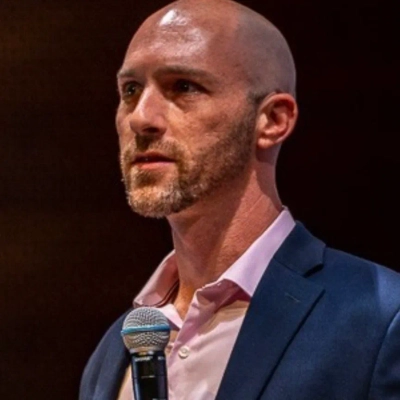
Secure Deposits Before Fulfilling Large Orders
Early at SourcingXpro, I made the mistake of taking on a big client order without securing upfront deposits. It looked like a breakthrough deal, so I ignored the risk. When their payment got delayed for weeks, I had to cover supplier costs out of pocket—almost wiped out a quarter's cash flow. That hit taught me discipline. Now every deal follows a strict structure: 30% upfront, balance before shipment, no exceptions. It wasn't about mistrust; it was about survival. Since then, our financial stability improved, and I stopped confusing growth with volume. Real growth is when cash moves as predictably as products.

Stagger Property Investments For Cash Stability
Once, I put too much capital into renovating multiple properties at once, believing quick flips would cover the risk, but slow sales left me stretched thin. That experience taught me to stagger investments, focusing on one or two projects at a time to keep cash flow steady and lower financial stress.
Protect Your Downside Before Seeking Growth
In the early days of Bay Area House Buyer, I once relied too much on leverage when acquiring properties during an overheated market. When deals slowed down unexpectedly, our liquidity got tight, which made routine operations stressful and limited our options. We switched to keeping at least 40% of our assets in cash reserves and tightened our debt ratiosmade things much more stable. My advice: protect your downside first, then look for growth.
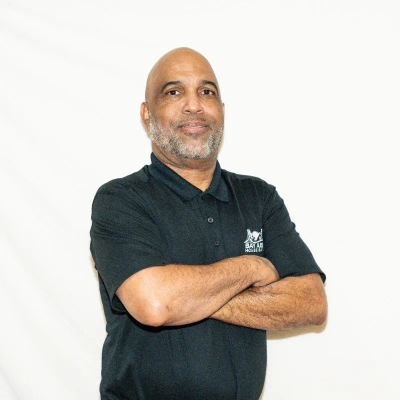
Build Financial Systems Beyond Marketing Investment
Early in my career, I made the mistake of reinvesting every dollar back into marketing without maintaining a proper reserve for unexpected expenses. At the time, I was focused entirely on growth and client acquisition, but I underestimated how unpredictable cash flow can be in a small Miami personal injury practice. When a few large medical malpractice cases took longer to settle than expected, my firm suddenly faced months of heavy overhead and limited incoming revenue.
That moment forced me to learn the importance of financial balance. I worked closely with an accountant to build a structured system that separated revenue into specific categories operations, taxes, savings, and reinvestment. It was a humbling experience that shifted my entire mindset from short term expansion to long term sustainability.
Now, every major decision at my firm starts with one question: does this strengthen our financial foundation or weaken it? That discipline not only stabilized the business but also gave me the peace of mind to focus on what matters most—helping clients recover after serious injuries and protecting families affected by medical negligence. The lesson was clear: growth means nothing without financial stability to support it.
Vet Insurance Panels Before Accepting Them
Accepting new insurance panels without closely checking reimbursement rates put us in a tough spot a few years ago. We ended up working harder for less, which made us rethink our approach. Now, we carefully vet contracts and maintain a mix of private-pay clients to keep our practice sustainable and staff fairly compensated.
Use Pre-Orders To Avoid Inventory Lockup
Over-investing in inventory during the early days of Rocker Ski Rack tied up funds that I could have used elsewhere, like marketing. The practical advantage of switching to a pre-order model is that I now only produce what's already spoken for, which eased cash flow stress. I'd definitely recommend starting with small runs and testing demand before scaling up production.

Add Contingency Budgets To Renovation Projects
One big financial mistake I made early on was underestimating renovation costs during property flips. There was this project where unexpected plumbing work ate up nearly all the profit because I hadn't built enough cushion into the budget. Now, I always add a 20% contingency to every rehab estimate and keep detailed records of vendor prices to avoid surprises. If you're new to real estate, my suggestion is to over-prepare your budget and document every expenseit genuinely saves you in the long run.







